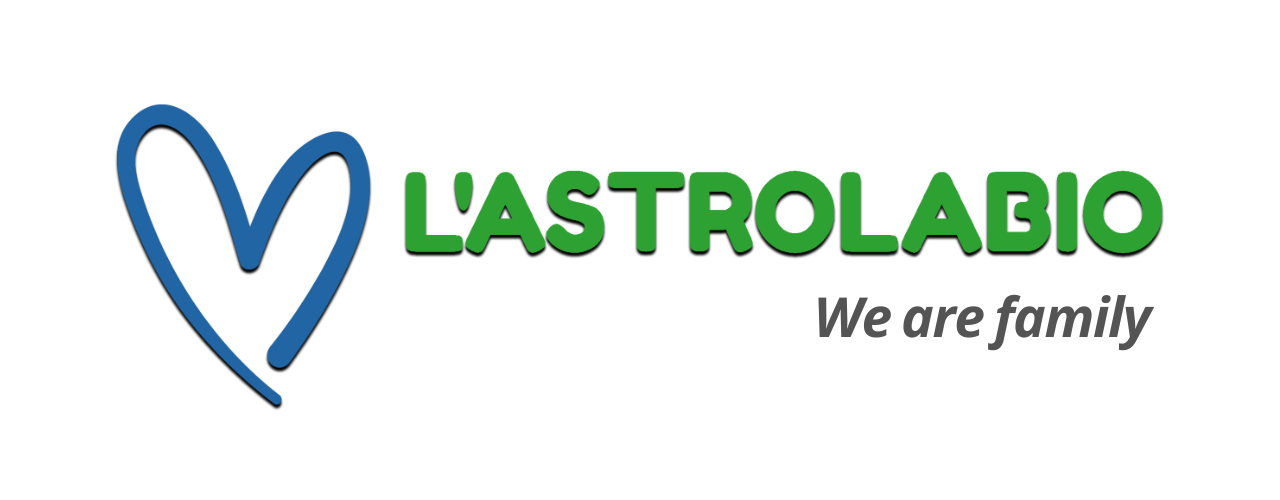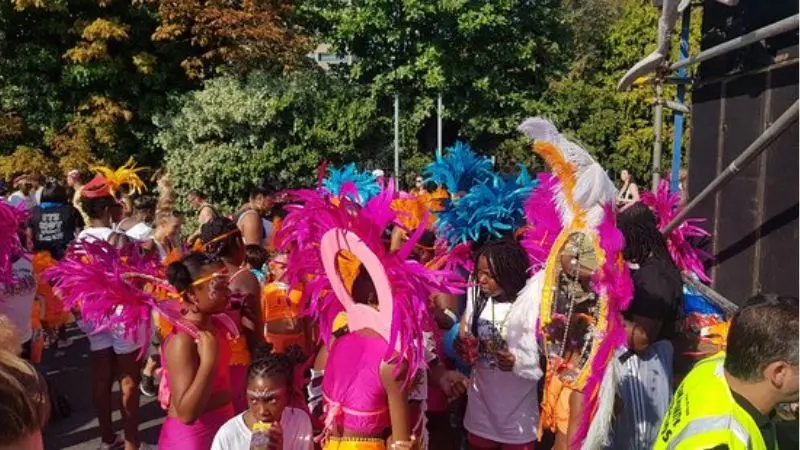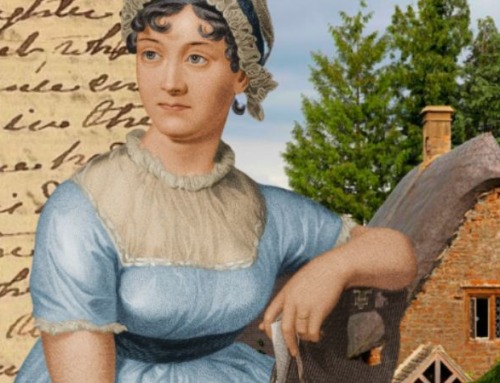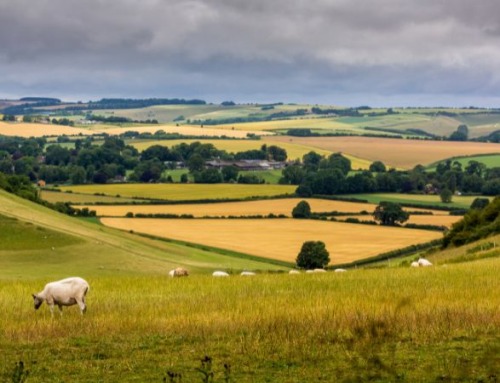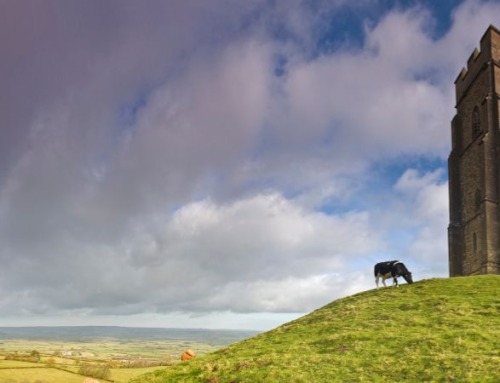Love dancing, food, and music? Then you’ll love Notting Hill Carnival, which brings Caribbean spirit to the streets of West London!
Thinking of heading to London in August? If so, you’re in for something unforgettable.
Every summer, the Notting Hill Carnival transforms West London into a sea of colour, rhythm and community pride, bringing together over two million people to celebrate Caribbean heritage through music, dance, food and breathtaking costumes.
From the moment the steel pans start ringing through the air, you know you’re somewhere special.
Indice dei contenuti
So, what exactly is Notting Hill Carnival?
Known locally as simply “carnival”, Notting Hill Carnival is one of the largest street festivals in the world, and the biggest in Europe.
But more than that, it’s a celebration of freedom, resilience and community. Since 1966, Notting Hill Carnival has honoured the Caribbean diaspora in London through music, food, dance and costume.
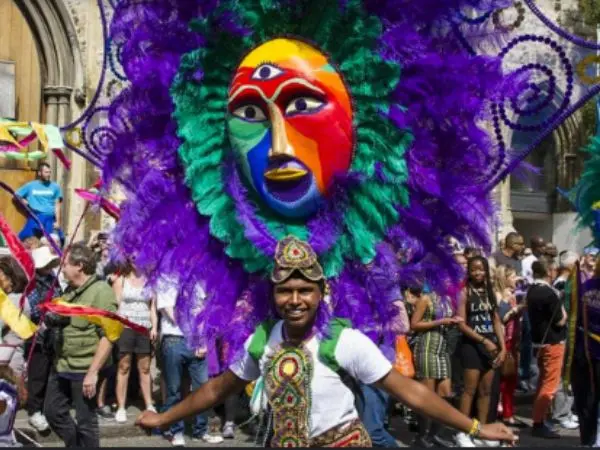
It’s bold. It’s proud. And it’s full of life.
The carnival was born out of struggle. It was a creative response to racism, exclusion and pain. Today, it continues to carry that legacy, while also offering joy, connection and space for everyone to join in.
This year, you can be part of it too.
From Saturday 23 to Monday 25 August 2025, West London transforms into a party like no other. Two full days of dancing, parades, music, and street food—open to everyone and completely free.
What should you expect at Carnival?
Expect the unexpected!
At Carnival, every corner brings a new sound, smell or sight to take in.
Here’s a breakdown of what happens:
Steel Band Competition
Before the main events kick off, steel pan bands go head-to-head in a vibrant competition. If you’ve never heard this music live, it’ll stop you in your tracks. The rich, melodic rhythms feel like a direct line to the Caribbean.
Children’s Day (Sunday)
This is a more relaxed, family-friendly version of the main parade. It’s a lovely way to introduce young people to Caribbean culture—with smaller floats, music, and safe activities for kids.
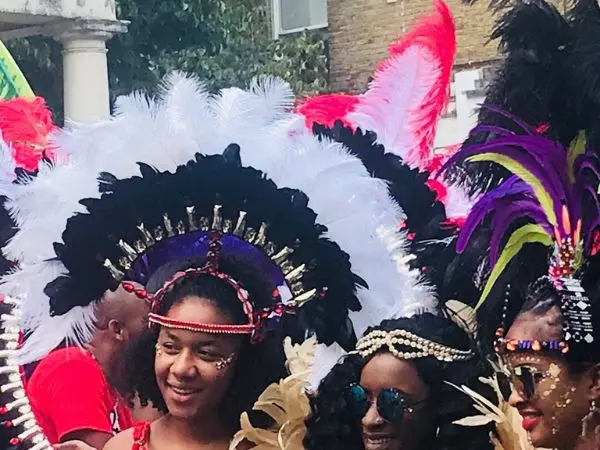
J’Ouvert
The name means “daybreak”, and that’s when it starts—early in the morning, before the crowds arrive. Expect paint, powder, and music. It’s raw, beautiful and powerful—a nod to the origins of Caribbean carnival traditions.
The Main Parade (Monday)
This is the heartbeat of Notting Hill Carnival. The streets are filled with thousands of performers wearing handmade costumes that often take months to create. Think sequins, feathers, glitter and bold colours that move to the beat of soca, calypso and dancehall.
Wherever you go, there’s something happening. Whether you’re following the main procession or just exploring side streets filled with sound systems, it’s impossible not to feel the rhythm.
Sound Systems
One of the most iconic parts of Notting Hill Carnival is the dozens of static sound systems. Each one brings its own music. from reggae and dancehall to afrobeats and jungle. Pick one that speaks to you and let yourself get carried away.
Judging Zone
This is where the best of the best compete. Costumes, dancing and float designs are judged live—and you’ll get to watch some of the most impressive performances of the day.
The history of Notting Hill Carnival
The carnival’s roots go back to the Caribbean, where enslaved people were banned from joining the European colonists’ lavish celebrations. So they created their own, drawing from African cultural practices, religious symbolism and satire to take their power back.
When slavery ended, these celebrations grew louder and prouder, especially in Trinidad where many modern Carnival traditions come from.
Fast forward to the UK in the mid-20th century, and London’s Caribbean population was growing fast—especially with the arrival of the Windrush Generation.
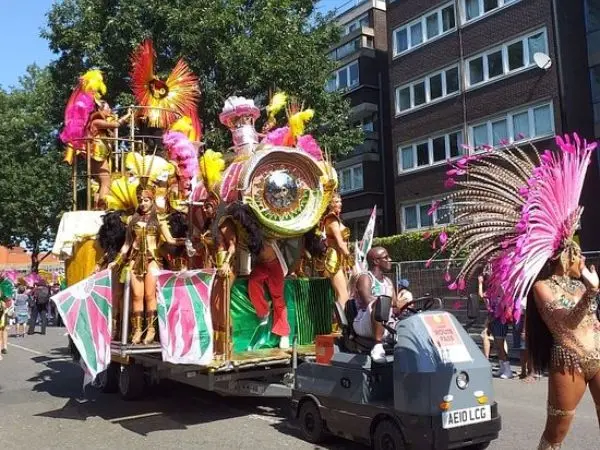
But things weren’t easy.
People still faced racism, poverty and social exclusion. So they turned to what they had: music, food, dancing. House parties known as shebeens became safe spaces for joy. Dishes like rice and peas, curry goat and roti connected people to home.
And out of that energy, Carnival was born.
It started with small community events led by people like Claudia Jones, Boscoe Holder and Rhaune Laslett. These were activists, artists and community leaders who saw joy as a form of resistance.
Today, Carnival still carries that same energy. It’s loud, defiant and joyful, all at once.
How Carnival has evolved over time
In the early days, Carnival felt more like a neighbourhood block party. Local families would open their homes, let visitors use the bathroom, offer a plate of food, or just have a chat.
That spirit of community is still there, but Carnival has grown immensely.
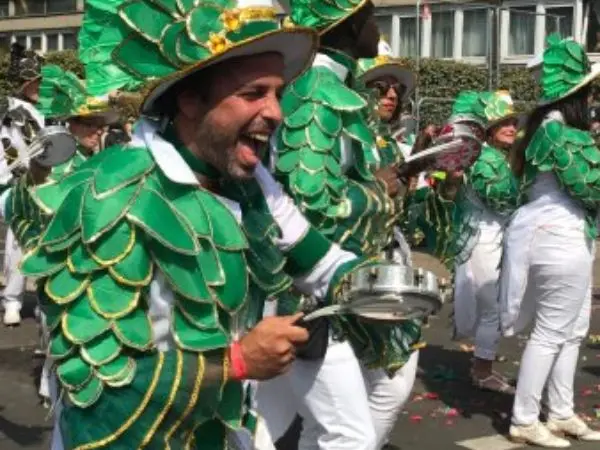
By the 1980s, it had become a major cultural and commercial event. Food stalls, drink vendors and costume makers began treating Carnival as a serious business.
A lot of Caribbean food vendors in London got their start here. People like Bernard Miller, who launched Trinidadian Roti Stop back in 1991, first brought his food to the streets through Carnival.
Now, it’s an essential part of the experience. You’ll find everything from jerk chicken and plantain to patties, roti and rum punch.
Why should you go?
Because there’s truly nothing like it.
If you’re coming to London for a study holiday or just planning a summer trip, Notting Hill Carnival is something you shouldn’t miss.
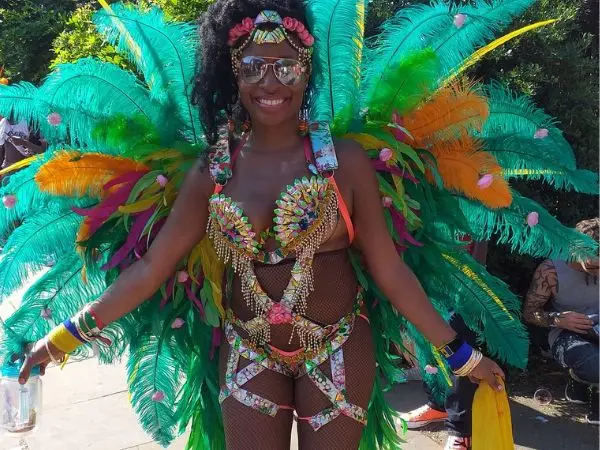
It’s not just about music or costumes. It’s about community. About resilience. About sharing culture in a way that’s raw and joyful and real.
You’ll walk away with sore feet, a full belly and maybe even some glitter you can’t get rid of for days.
But you’ll also carry a piece of what Carnival stands for—freedom, joy and unity.
Thinking of heading to London this August?
If so, make sure Notting Hill Carnival is part of your London plans.
Whether you’re dancing in the streets, trying your first plate of jerk chicken, or dancing to the music of a steel pan band, you’ll experience something that stays with you long after it ends.
It’s more than a festival. It’s a celebration of freedom, culture and belonging, something you can feel the moment you arrive.
You won’t just be watching the Carnival. You’ll be part of it!
